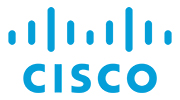Protocols | IEEE 802.11a, 802.11b, 802.11g, 802.11n, and 802.11ac |
Frequency bands and operating channels | 2.412-2.472 GHz (channels 1-13) |
5.180-5.240 GHz (channels 36-48) |
5.260-5.320 GHz (channels 52-64) |
5.500-5.700 GHz (channels 100-140) |
5.745-5.825 GHz (channels 149-161) |
IEEE 802.11d is used to identify available channels. |
Nonoverlapping channels | 2.4 GHz (20-MHz channels): Up to 3 channels |
5 GHz (20-MHz channels): Up to 24 channels |
5 GHz (40-MHz channels): Up to 9 channels |
5 GHz (80-MHz channels): Up to 4 channels |
Operating modes | Auto (default), preference to strongest RSSI for 2.4 or 5 GHz |
2.4 GHz only |
5 GHz only |
Data rates | 802.11a: 6, 9, 12, 18, 24, 36, 48, and 54 Mbps |
802.11b: 1, 2, 5.5, and 11 Mbps |
802.11g: 6, 9, 12, 18, 24, 36, 48, and 54 Mbps |
802.11n: HT MCS 0, MCS 1, MCS 2, MCS 3, MCS 4, MCS 5, MCS 6, and MCS 7 |
802.11ac: VHT MCS 0, MCS1, MCS 2, MCS 3, MCS 4, MCS 5, MCS 6, MCS 7, MCS 8, and MCS 9 |
(MCS 9 available with VHT40 and VHT80 only) |
2.4-GHz receiver sensitivity | IEEE 802.11b: | IEEE 802.11g: | IEEE 802.11n HT20: |
1 Mbps: -98 dBm | 6 Mbps: -95 dBm | MCS 0: -95 dBm |
2 Mbps: -96 dBm | 9 Mbps: -94 dBm | MCS 1: -92 dBm |
5.5 Mbps: -93 dBm | 12 Mbps: -93 dBm | MCS 2: -90 dBm |
11 Mbps: -91 dBm | 18 Mbps: -90 dBm | MCS 3: -87 dBm |
| 24 Mbps: -87 dBm | MCS 4: -83 dBm |
| 36 Mbps: -84 dBm | MCS 5: -78 dBm |
| 48 Mbps: -79 dBm | MCS 6: -77 dBm |
| 54 Mbps: -77 dBm | MCS 7: -75 dBm |
5-GHz receiver sensitivity | IEEE 802.11a: | IEEE 802.11n HT20: | IEEE 802.11n HT40: |
6 Mbps: -94 dBm | MCS 0: -94 dBm | MCS 0: -91 dBm |
9 Mbps: -93 dBm | MCS 1: -91 dBm | MCS 1: -88 dBm |
12 Mbps: -92 dBm | MCS 2: -89 dBm | MCS 2: -86 dBm |
18 Mbps: -89 dBm | MCS 3: -86 dBm | MCS 3: -83 dBm |
24 Mbps: -86 dBm | MCS 4: -82 dBm | MCS 4: -79 dBm |
36 Mbps: -83 dBm | MCS 5: -77 dBm | MCS 5: -75 dBm |
48 Mbps: -78 dBm | MCS 6: -76 dBm | MCS 6: -73 dBm |
54 Mbps: -76 dBm | MCS 7: -74 dBm | MCS 7: -72 dBm |
IEEE 802.11ac VHT20: | IEEE 802.11ac VHT40: | IEEE 802.11ac VHT80: |
MCS 0: -93 dBm | MCS 0: -90 dBm | MCS 0: -87 dBm |
MCS 1: -90 dBm | MCS 1: -87 dBm | MCS 1: -83 dBm |
MCS 2: -87 dBm | MCS 2: -85 dBm | MCS 2: -81 dBm |
MCS 3: -84 dBm | MCS 3: -82 dBm | MCS 3: -78 dBm |
MCS 4: -81 dBm | MCS 4: -79 dBm | MCS 4: -75 dBm |
MCS 5: -76 dBm | MCS 5: -73 dBm | MCS 5: -73 dBm |
MCS 6: -75 dBm | MCS 6: -72 dBm | MCS 6: -68 dBm |
MCS 7: -74 dBm | MCS 7: -72 dBm | MCS 7: -68 dBm |
MCS 8: -70 dBm | MCS 8: -67dBm | MCS 8: -64 dBm |
| MCS 9: -66 dBm | MCS 9: -62 dBm |
Transmitter output power | 2.4 GHz: | 5 GHz: |
802.11b: Up to 17 dBm | 802.11a: Up to 16 dBm |
802.11g: Up to 16 dBm | 802.11n HT20: Up to 13 dBm |
802.11n HT20: Up to 13 dBm | 802.11n HT40: Up to 13 dBm |
| 802.11ac VHT20: Up to 12 dBm |
| 802.11ac VHT40: Up to 12 dBm |
| 802.11ac VHT80: Up to 12 dBm |
Antenna | 2.4 GHz: 2.08-dBi peak gain |
5 GHz: 1.88-dBi peak gain |
Access-point support | Cisco Wireless Access Points |
Minimum: 7.0.240.0 |
Recommended: 7.4.121.0, 7.6.110.0, or later |
Cisco Aironet Access Points in Autonomous Mode |
Minimum: 12.4(21a)JY |
Recommended: 12.4(25d)JA2 or later |
Cisco Meraki® access points |
Wireless security | Authentication: | Encryption: |
Wi-Fi Protected Access (WPA) Versions 1 and 2 Personal and Enterprise | 40- and 128-bit static Wired Equivalent Privacy (WEP) |
EAP-FAST | Temporal Key Integrity Protocol (TKIP) and Message Integrity Check (MIC) |
Protected Extensible Authentication Protocol - Microsoft Challenge Handshake Authentication Protocol Version 2 (PEAP-MSCHAPv2) | Advanced Encryption Standard (AES) |
Fast secure roaming | 802.11r (FT) |
Cisco Centralized Key Management (CKM) |
QoS | IEEE 802.11e and Wi-Fi Multimedia (WMM) |
Traffic Specification (TSPEC) |
Traffic Classification (TCLAS) |
Enhanced Distributed Channel Access (EDCA) |
QoS Basic Service Set (QBSS) |
Radar detection | Dynamic frequency selection (DFS) and transmit power control (TPC) according to IEEE 802.11h |

